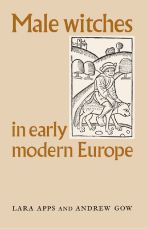Edited by Jonathan Adams and Cordelia Hess
Is research on antisemitism even necessary in countries with a relatively small Jewish population? Absolutely, as this volume shows. Compared to other countries, research on antisemitism in the Nordic countries (Denmark, the Faroe Islands, Finland, Greenland, Iceland, Norway, and Sweden) is marginalized at an institutional and staffing level, especially as far as antisemitism beyond German fascism, the Second World War, and the Holocaust is concerned. Furthermore, compared to scholarship on other prejudices and minority groups, issues concerning Jews and anti-Jewish stereotypes remain relatively under researched in Scandinavia – even though antisemitic stereotypes have been present and flourishing in the North ever since the arrival of Christianity, and long before the arrival of the first Jewish communities.
This volume aims to help bring the study of antisemitism to the fore, from the medieval period to the present day. Contributors from all the Nordic countries describe the status of as well as the challenges and desiderata for the study of antisemitism in their respective countries.
Berlin ; Boston : De Gruyter, [2020]










